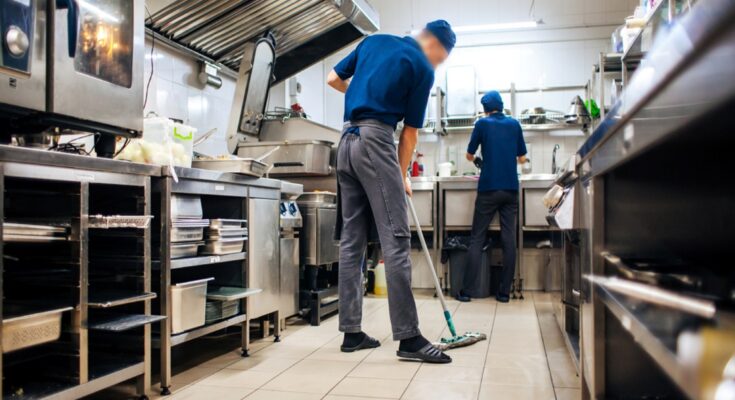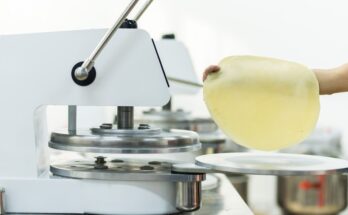Running a successful restaurant goes beyond serving delectable dishes; it hinges on maintaining an impeccably clean environment. This comprehensive guide delves into the world of restaurant cleaning standards, offering insights into best practices and regulations, provided by Baltimore-based Cleaner Vibe experts, to ensure your establishment is not just clean, but sparkling.
The Importance of Cleanliness in Restaurants
Before we dive into the specifics, let’s underscore the significance of cleanliness in the culinary world. A clean restaurant not only ensures the health and safety of your customers and staff but also enhances your establishment’s reputation. Studies show that patrons are more likely to return to and recommend restaurants that they perceive as clean and hygienic.
Health and Safety Regulations
Adhering to health and safety regulations is paramount. These rules vary by region but generally include guidelines on food storage, preparation, and kitchen sanitation. Familiarize yourself with your local health department’s requirements to ensure compliance and avoid penalties.
First Impressions Matter
The cleanliness of your dining area plays a crucial role in shaping first impressions. Ensure that floors are spotless, tables are clean and well-organized, and restrooms are sanitary and well-stocked. Remember, a clean dining area is not just about aesthetics; it’s about customer trust.
Best Practices for Kitchen Cleanliness
The kitchen, the heart of your restaurant, requires special attention, according to customcleaningpb.com site. Implementing rigorous cleaning practices here is non-negotiable for both food safety and quality.
Daily Cleaning Checklist
- Sanitize all surfaces: Countertops and cutting boards need to be sanitized before and after use to prevent cross-contamination.
- Deep clean equipment: Ovens, grills, fryers, and other kitchen equipment should be thoroughly cleaned daily to prevent grease and food particle buildup.
- Floor maintenance: Ensure floors are swept and mopped at the end of each day to remove food debris and prevent pest infestations.
Periodic Deep Cleaning
In addition to daily cleaning tasks, schedule regular deep cleaning sessions. This includes cleaning hard-to-reach areas, descaling sinks and faucets, and deep cleaning ventilation systems. Such meticulousness not only maintains hygiene but also prolongs the life of your equipment.
Front of House Cleaning Tips
While kitchen cleanliness is crucial for safety, the cleanliness of your dining area is equally important for customer satisfaction.
Spotless Dining Experience
- Table turnaround: Clean and reset tables immediately after guests leave, ensuring the next guests are greeted with a clean slate.
- Attention to detail: Pay attention to details like smudge-free windows, polished silverware, and spotless menus, which contribute significantly to the dining experience.
Restroom Maintenance
Restrooms are often overlooked, but they are critical in shaping guests’ perceptions of your establishment. Ensure they are checked and cleaned regularly throughout the day.
Navigating Cleaning Regulations and Standards
Understanding and navigating the regulations surrounding restaurant cleanliness is crucial, as highlighted on the https://www.celestialcleaningservice.com website. Regular inspections by health departments ensure compliance with local and national standards.
Stay Updated
Regulations and standards can change, so it’s important to stay informed. Subscribe to industry newsletters, and attend workshops and seminars to keep abreast of the latest requirements and best practices.
Employee Training
Train your staff regularly on cleanliness and sanitation practices. Well-informed employees are your first line of defense against health hazards and non-compliance.
Fun Facts and Tips
- Did you know? The cleanest restaurants can still harbor bacteria in the most unexpected places, such as menus and salt shakers. Regular sanitization is key.
- Eco-friendly cleaning: Consider using eco-friendly cleaning products. They’re not only good for the environment but can also be a selling point for your restaurant.
- Lemon power: Lemons are not just for cooking; they’re a natural disinfectant. Use lemon juice to remove tough stains and freshen up your kitchen.
Maintaining a sparkling clean restaurant is an ongoing commitment that pays off in customer satisfaction, repeat business, and compliance with health regulations. By implementing the best practices outlined in this guide, from kitchen to dining area, you ensure a safe, pleasant, and hygienic dining experience for your guests. Remember, a clean restaurant is a successful restaurant. Stay sparkling!




